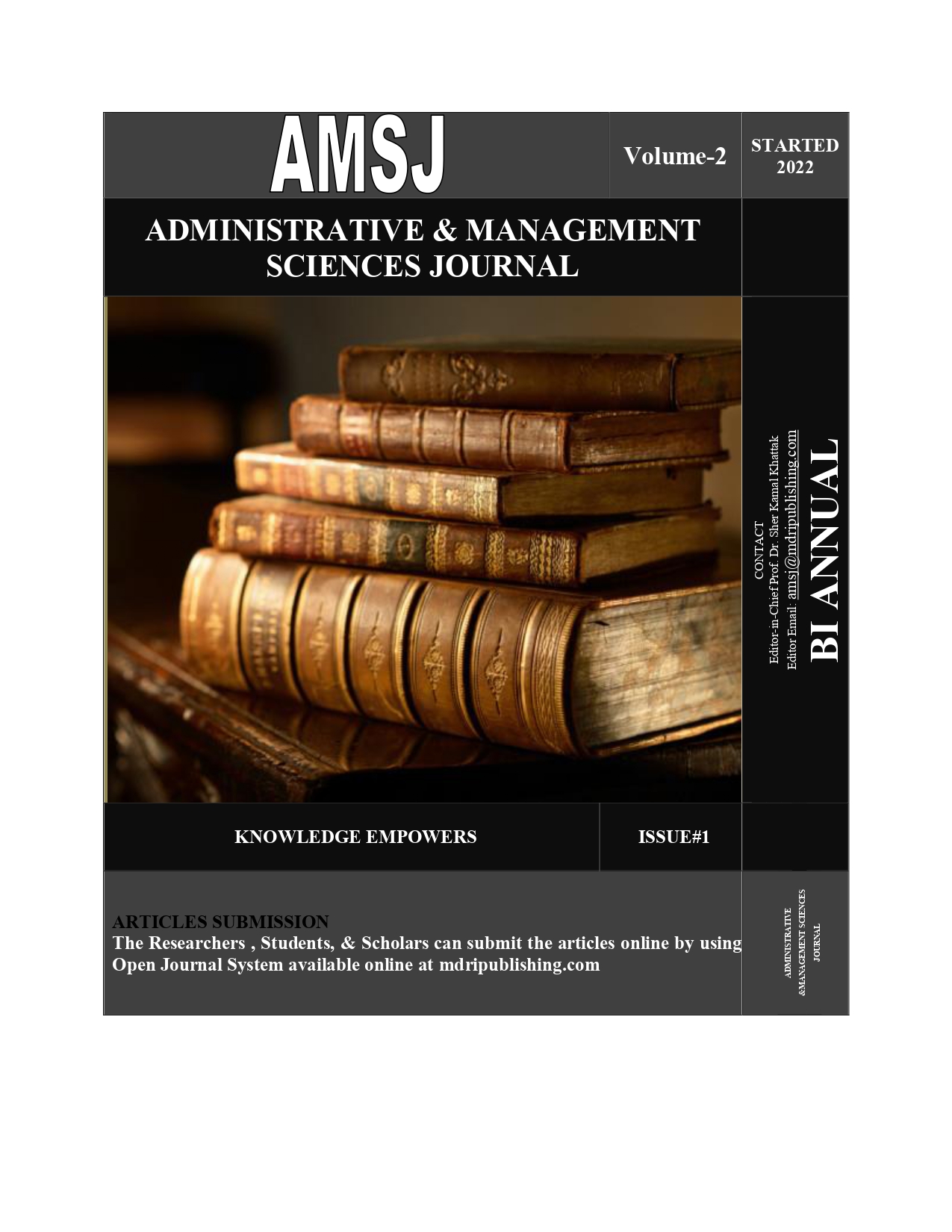The Impact of Ethical Leadership on Stressors and Employee Performance
DOI:
https://doi.org/10.59365/amsj.2(1).2023.60Abstract
This study aimed to investigate the correlation between stressors and ethical leadership, and their impact on the performance of critical area nurses in a tertiary care hospital. The issue of stress among hospital staff appears to be a significant concern that impacts the functioning of the healthcare system. Questionnaires were used to gather data from 391 full-time nurses working in the critical care sector. The data focused on leadership style, employee performance, and stressors. Structural Equation Modeling conducted using SMART-PLS 4.0. The present study introduced a novel perspective for firms that aim to address work-life pressures and improve employee performance by emphasizing the positive impact of ethical leadership. Organizations have the ability to develop and improve the communication skills of their managers through planned training sessions. This organization should recognize the importance of research that emphasizes the role of leadership in terms of communication competency in order to optimize employee performance and enhance organizational efficiency.





